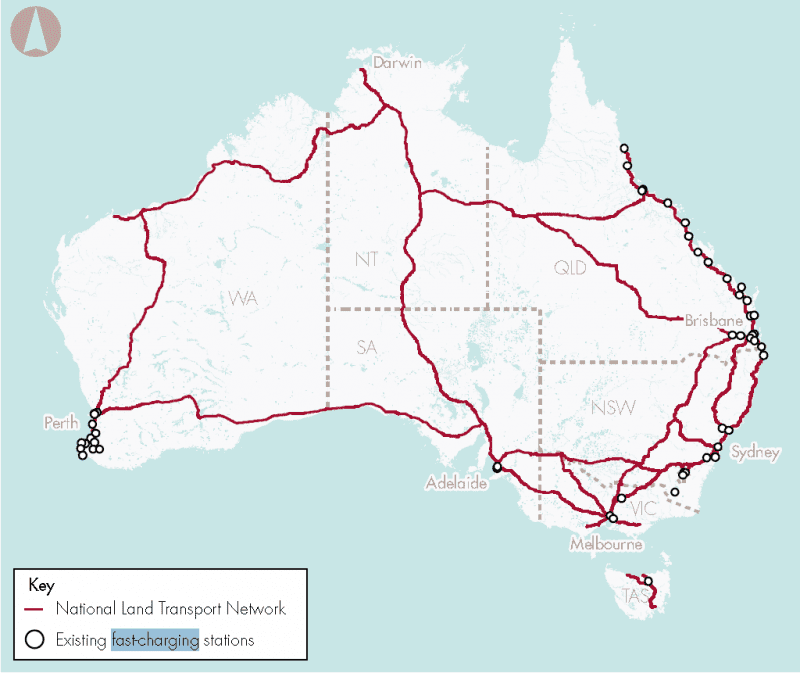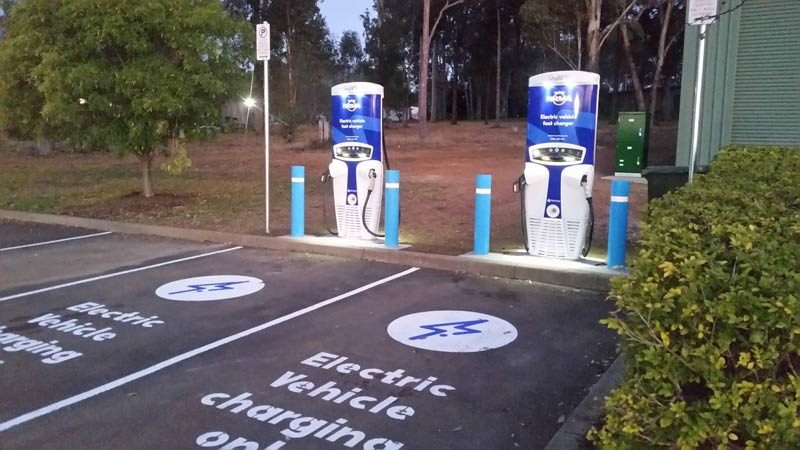The peak independent body advising the federal government on infrastructure is calling for a network of electric car fast chargers along all national highways, and offers an opportunity for growth that would see Australia move out of the age of the internal combustion engine to embrace zero emissions transport.
One of 29 High Priority Initiatives identified by advising agency Infrastructure Australia, a national EV charging network would help address the inevitable shift to EVs that is already happening overseas.
“Technological change is driving significant shifts in infrastructure demand,” Infrastructure Australia Chair Julieanne Alroe said in a statement to the press.
“The advent of electric vehicles, along with automation, growth in the ‘sharing economy’ and technological connectivity, could bring the largest transformation the transport sector has seen since the shift from steam to diesel locomotives,” she said.
To date, Australia has around 2,300 electric vehicles on Australian roads according to Infrastructure Australia, and current forecasts indicate that by 2040, 70% of new vehicles and 30% of fleet purchases will be electric.
There is a fresh influx of electric vehicle models about to hit Australian showrooms, however the average range of an electric vehicle is still around 400km.
While there has been some headway made into an EV charging network in Australia thanks to the Queensland Electric Superhighway, a new EV charging network being rolled out by the NRMA in NSW and a series of ultra fast-chargers being installed from Brisbane to Adelaide with a second section around Perth, there are still some huge gaps to be filled.
Filling those gaps – particularly in regional areas as opposed to only on the coast – would go a long way to reducing the ‘range anxiety’ that many drivers cite as one barrier to purchasing electric vehicles.

Along with the need to address these gaps, Infrastructure Australia notes that a national policy and regulations would help “reduce the risk of competing standards and redundant investments, and maximise inter-operability.”
The development of a national EV charging network would also result in a relationship between the transport and energy sectors in a way that has not been seen before, Alroe notes.
“The increase in electric vehicle uptake will forge links between the energy and transport network that did not previously exist, placing additional demands on the grid and pressure on consumer costs.
“The 2019 Priority List highlights the need for investment in the connectivity and reliability of our National Electricity Market in the medium to long term, and optimisation in the near term,” Alroe said.

Bridie Schmidt is associate editor for The Driven, sister site of Renew Economy. She has been writing about electric vehicles since 2018, and has a keen interest in the role that zero-emissions transport has to play in sustainability. She has participated in podcasts such as Download This Show with Marc Fennell and Shirtloads of Science with Karl Kruszelnicki and is co-organiser of the Northern Rivers Electric Vehicle Forum. Bridie also owns a Tesla Model Y and has it available for hire on evee.com.au.


